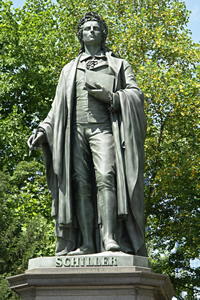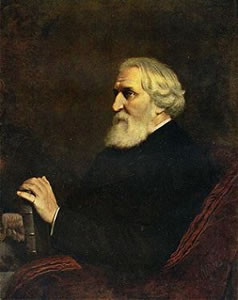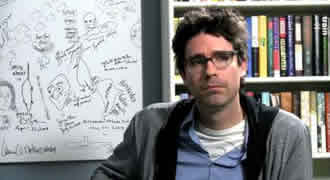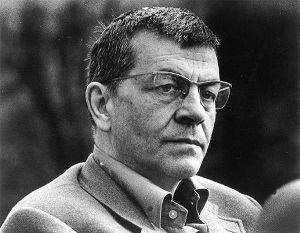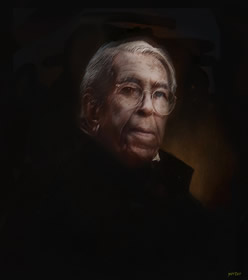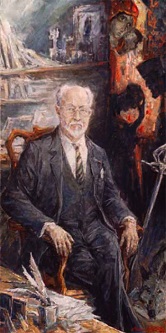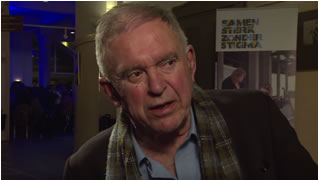De Duitse dichter en schrijver Hans Magnus Enzensberger werd geboren op 11 november 1929 in Kaufbeuren. Zie ook alle tags voor Hans Magnus Enzensberger op dit blog en ook mijn blog van 11 november 2010.
Der Untergang der Titanic – Zwölfter Gesang
Von diesem Augenblick an verläuft alles planmäßig.
Der stählerne Rumpf vibriert nicht mehr, still
liegen die Maschinen, längst sind die Feuer gelöscht.
Was ist los? Warum machen wir keine Fahrt? Man lauscht.
Draußen im Korridor werden Rosenkränze gemurmelt.
Die See ist glatt, schwarz, glasig. Mondlos die Nacht.
Oh, es ist nichts! Es ist nichts zerbrochen an Bord,
keine Vase und kein Champagnerglas. Man wartet
in kleinen Gruppen, wortlos, geht auf und ab,
im Pelz, im Schlafrock, im Overall, man gehorcht.
Jetzt werden Taue aufgerollt, Planen fortgezogen
von den Booten, Davits ausgeschwenkt. Es ist,
als hätten die Passagiere Tabletten geschluckt. Dieser Mann z. B.,
der sein Cello hinter sich herzieht über das endlose Deck,
man hört, wie der Sporn an den Planken kratzt,
immerzu kratzt, kratzt und man fragt sich: Wie
ist das nur möglich? – Ah! schau! eine Notrakete! –
Aber es ist nur ein schwaches Zischen, schon verpufft
am Himmel, im Widerschein die Gesichter bläulich und leer.
Still stehen Liftboys, Masseusen und Bäcker Spalier.
Auf der California, einem alten Kahn, zwölf Meilen weiter,
dreht sich in seinem Bett der Funker um und schläft ein.
Achtung Achtung! Frauen und Kinder zuerst! – Wieso eigentlich?
Antwort: We are prepared to go down like gentlemen. –
Auch gut. – Sechzehnhundert bleiben zurück. Die Ruhe an Bord
ist unvorstellbar. – Hier spricht der Kapitän. Es ist genau
zwei Uhr, und ich befehle: Rette sich wer kann! – Musik!
Zur letzten Nummer erhebt der Kapellmeister seinen Stock.
Avondjournaal
Bloedbad om een handvol rijst,
hoor ik, voor elkeen elke dag
een handvol rijst: trommelvuur
op dunne hutten, onduidelijk
hoor ik het, bij het avondeten.
Op de geglazuurde dakpannen
hoor ik rijstkorrels dansen,
een handvol, bij het avondeten,
rijstkorrels op mijn dak:
de eerste maartregen, duidelijk.
Vertaald door René Smeets
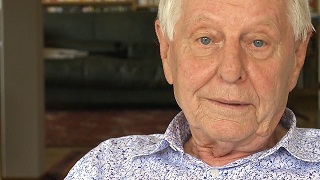
Hans Magnus Enzensberger (Kaufbeuren,11 november 1929)
Lees verder “Hans Magnus Enzensberger, Mircea Dinescu, Carlos Fuentes, Nilgün Yerli, Luigi Malerba”

